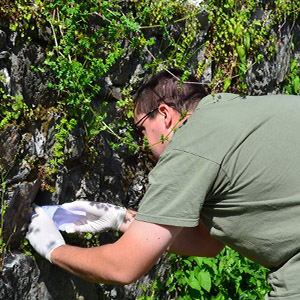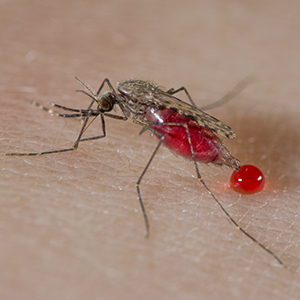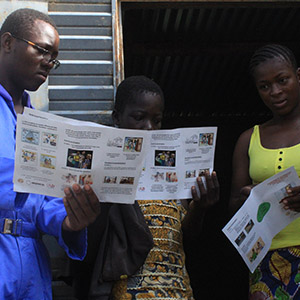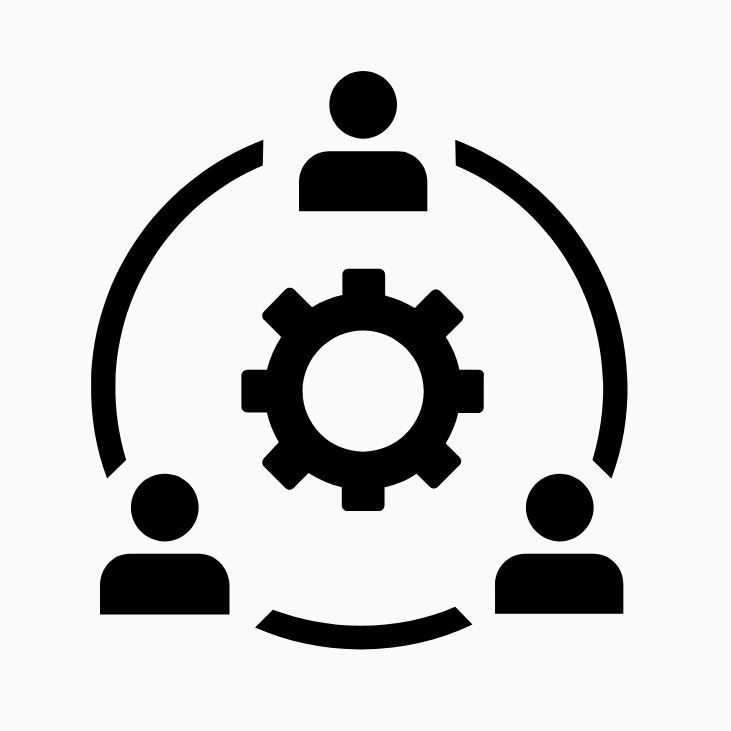Teams (ESV)
DEEVA: Diversity, Ecology, Evolution, & Adaptation of Arthropod Vectors
Coordinators: Florence FOURNET & Diego AYALA

Members:
-
Diego Ayala
-
Colombine Bartholomee
-
Philippe Bousses
-
Carlo Costantini
-
Didier Fontenille
-
Florence Fournet
-
Bruno Granouillac
-
Davy Jiolle
-
Pierre Kengne
-
Théo Mouillaud
-
Karine Mouline
-
Naomi Moumouni Sabatini
-
Giuliano Mucci
-
Christophe Paupy
-
Angélique Porciani
-
Nil Rahola
-
Olivier Roux
-
Frédéric Simard
-
Celine Sutter
-
Anne Xuéreb
Context:
A combination of multiple factors relating to the biology of insect vectors and human actions is what allows for the transmission of vector-borne diseases. Controlling them implies the need for global actions targeting all scales, from individuals to ecosystems.
Objectives:
To provide fundamental and innovative information to develop effective interventions: Characterisation of the biodiversity and ecology of insect vectors in order to understand the spatiotemporal dynamics of the disease; Analysis of physiological, behavioural, ecological, and genetic changes that affect the structure of the population (dispersion, gene flow, demography, etc.) and the evolution of vector systems; Measurement of the impact of human actions in a changing environment.
Keywords :
Diversity, Environmental change, Adaptation, Plasticity, Speciation, Vector communities, Genomics, Anopheles, Aedes, Triatominae, Phlebotominae
TRIAD: Host-Vector-Pathogen Transmission, Interactions, and Adaptations
Coordinators: Anne POINSIGNON & Arthur TALMAN

Members :
Context:
A vector system is a complex ecosystem where transmission is modulated by the variability of parasite and vector genomes and their interactions in a changing environment.
Objectives :
The research programmes developed by the TRIAD team aim to (i) study how genetic and environmental factors, including control interventions, modulate the interactions between pathogens, their mosquito vectors, and their vertebrate hosts, and (ii) provide a better understanding of the strategies implemented by the parasites to optimise the exploitation of the host and their transmission, and those implemented by the hosts to avoid or limit infection. The TRIAD team brings together skills ranging from medical entomology to chemical ecology, molecular biology to bioinformatics, and population genetics to modelling, thus allowing it to implement a wide range of panel of experimental approaches, both in the laboratory and in the field.
Keywords:
Transmission mechanisms, Vectorial capacity, Adaptation, Reservoir, Malaria, Arbovirus, Immunity, Transmission ecology, Host-vector-pathogen interactions, Diversity
VCG: Vector Control Group – Vector Control Strategies
Coordinators: Cédric PENNETIER & Nicolas MOIROUX

Membres :
-
Nathalie Barougier
-
Marc-André Bernard
-
Cécile Brengues
-
Fabrice Chandre
-
Vincent Corbel
-
Sylvie Cornelie
-
Stéphane Duchon
-
Delphine Dupé
-
Victoria Franco martins barreira
-
Carole Ginibre
-
Louis Clément Gouagna
-
Anthony Herbin
-
Raymond Leguier
-
Maeva Lobeau
-
Medhi Mercury
-
Nicolas Moiroux
-
Cédric Pennetier
-
Silvia Perez carrillo
-
Franck Remoue
-
David Roiz
-
Marie Rossignol
-
Bethsabée Scheid
-
Paul Taconet
Context:
The VCG studies vector control strategies, resistance, and their effects on transmission with the aim of implementing integrated management for vector populations that also respects the environment.
Objectives :
The VCG focuses on the following topics:
- Dynamics and evolution of insecticide resistance in vectors;
- Vector biology and behaviour in the context of vector control interventions;
- Entomological, immunological, and epidemiological assessment of the effectiveness of control strategies.
Objectives:
- To develop, implement, and assess innovative approaches to vector control, such as the sterile insect technique, Wolbachia or densovirus infections, mass-trapping, insecticide mixtures, and community participation.
- To optimise proactive control and integrated surveillance, and develop innovative tools for early detection and modelling of the distribution of vectors and resistance.
Keywords
Vector control strategies, Resistance, Integrated management of vector populations
2ET: ESV technical team
Coordinators : Sylvie CORNÉLIE & Nil RAHOLA

Objectives:
The 2ET team aims to:
- Provide the means necessary to allow for discussions and dialogue concerning equipment, sticking points for handling operations, training, how best to share information and promote cohesion among the ESV team’s engineers, technicians, and administrative staff, all while offering a broader perspective;
- Ensure technical developments are monitored for the ESV and more broadly MIVEGEC.
